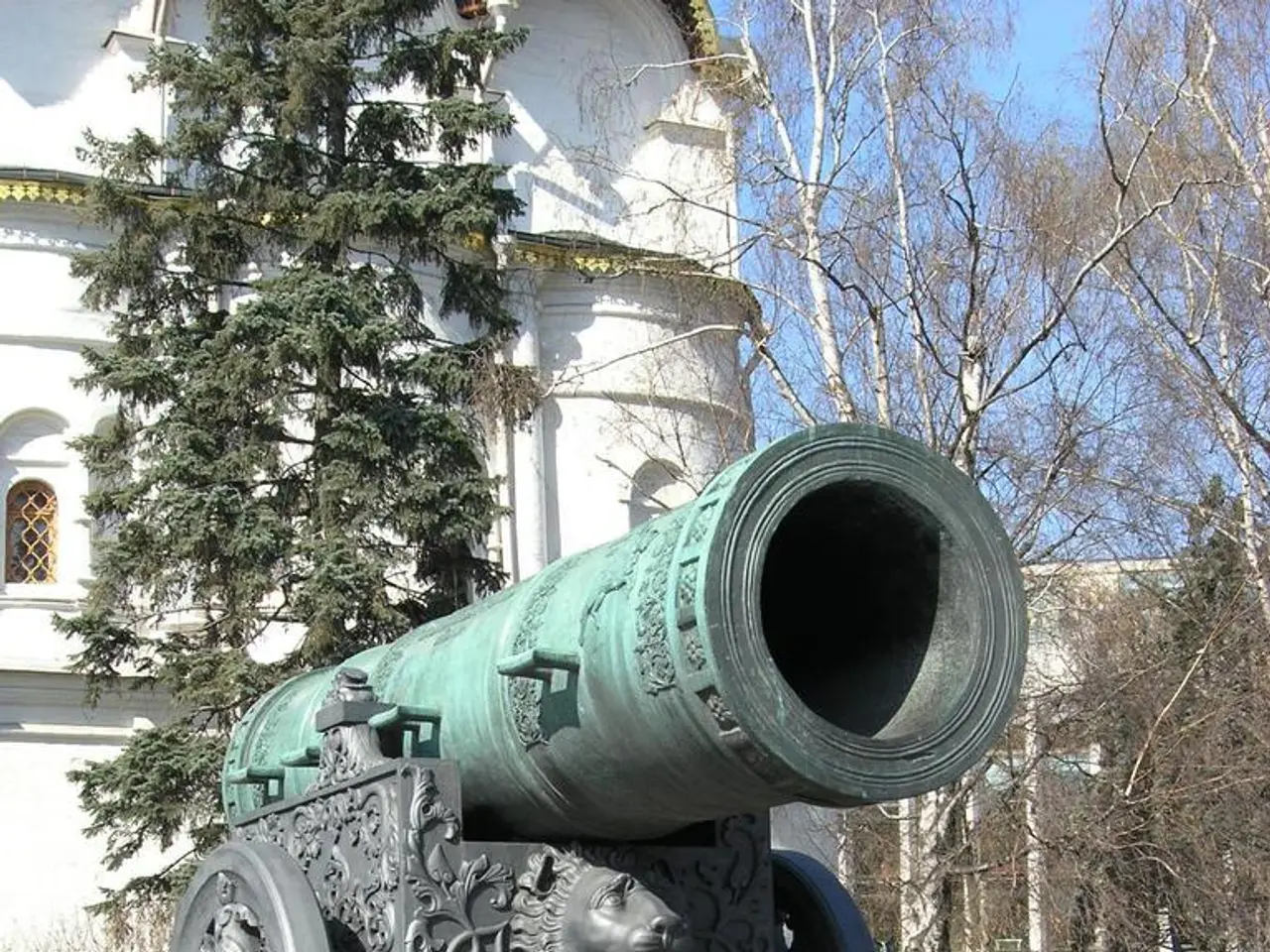Political Muddle Threatens Thailand's Economy and Investor Confidence
Economic instability looms due to internal divisions within the ruling coalition.
In the heart of Southeast Asia, political strife brews between the ruling Pheu Thai Party and their coalition partner, Bhumjaithai Party, with potentially disastrous consequences for Thailand's fragile economy. Adding fuel to the fire is the looming threat of a 36% US tariff on Thai exports, casting a long shadow over the nation's future.
Economy Bracing for Impact
Poonyawat Sreesing, a senior economist at Siam Commercial Bank's Economic Intelligence Center (SCB EIC), warns that Thailand's economy has been battling political uncertainty for far too long and cannot withstand the shock of a House dissolution. With the cabinet likely to change, the government's key support policies must be preserved to help stabilize the subdued economy.
Yunyong Thaicharoen, the chief economist and sustainability officer at SCB EIC, urges swift action to minimize the negative consequences on the economy. "Political instability undermines confidence," he remarks, hoping for a speedy resolution.
Sectors Feeling the Pain
Somchai Sittichaisrichart, managing director of IT product distributor SIS Distribution (Thailand) Plc, sees political instability adversely affecting Thailand's already precarious economic conditions, particularly hitting household debt, US exports, and the tourism sector, especially the lucrative Chinese market. At best, the year's growth might only hit 1%, or worse, Thailand could even experience zero growth.
Waiting Game
With a potential cabinet reshuffle, delays may plague newly proposed IT initiatives for fiscal 2026, as ministries await new directives. Vital ongoing government IT projects, however, are expected to proceed as planned.
FTI's Take
The Federation of Thai Industries (FTI) expresses confidence that the government will eventually change ministers, but stresses that political stability is crucial for economic growth. The federation urges the government to find ways to aid the economy and generate employment, emphasizing the importance of bipartisan unity in order to rebuild trust with businesses and households.
Political Divide
According to Kiatanantha Lounkaew, a professor in the economics faculty at Thammasat University, the split between Pheu Thai and Bhumjaithai is not due to ideological differences, but rather a trade-off of interests. If the appointments in the new cabinet are made based on personal connections or quota sharing, it could risk undermining already faltering public trust even further.
Experts warn that if political change occurs through non-democratic means, it could trigger widespread, destabilizing protests and prolonged, devastating economic consequences. It is crucial to preserve democratic norms and maintain public trust to ensure the long-term well-being of the Thai economy.
- The looming political strife between Thailand's ruling Pheu Thai Party and Bhumjaithai Party, in the realm of policy-and-legislation and politics, threatens to disrupt the stable financial environment of businesses and the overall economy.
- In the general news, the Federation of Thai Industries (FTI) has called for bipartisan unity and political stability, emphasizing their crucial role in fostering economic growth, job creation, and rebuilding trust with businesses and households.




